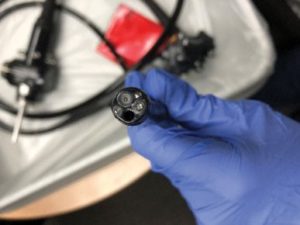
Flexible endoscopes continue to make headlines due to the risk of infection stemming from their use on patients. Many hospitals find themselves in the unenviable position of determining how they can perform critical endoscope-based procedures while minimizing the risk of infection. There is ample evidence showing that endoscopes can spread life-threatening illnesses when not properly reprocessed, however the benefits of endoscope-based procedures continue to outweigh the risks.
Now would be a great time for hospitals to conduct a risk assessment of their endoscopy practice. Making sure that hospitals are prepared for the adequate reprocessing and maintenance of endoscopes is required to ensure the safety of their patients. This article by hpnonline.com gives solid advice for any hospital conducting a risk assessment: Safer scopes
As the article mentions, hospitals wishing to conduct a risk assessment can follow 4 steps:
- Completing a detailed inventory of their scopes
- Identifying and recording risks associated with each of their scopes
- Conducting a thorough review of literature from various societies concerned with endoscope safety
- Determining mitigation strategies for endoscope safety
The infection risk with endoscopes continues to be a major worry for both surgery centers and hospitals. Facilities must ensure staff are trained on general infection control principles and must adhere to reprocessing best practices. To ensure that your staff is following reprocessing best practices on every scope they disinfect, think about installing additional checks and balances into your workflow so that you can document that the staff is following the same process each time. Endoscope tracking software such as iRIScope has been introduced in recent years to help hospitals and surgery centers ensure that each of their flexible endoscopes is reprocessed the proper way each time, and documentation of their reprocessing is kept electronically using advanced RFID technology.
